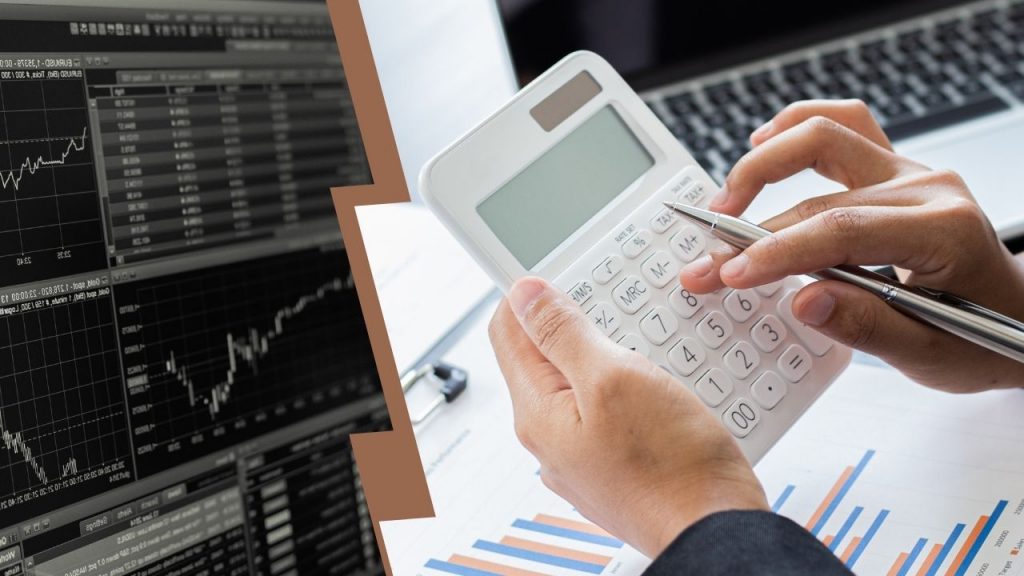If you are willing to calculate how much your investment will grow over time, all you need is to know how to use a Forex Compounding calculator. Let’s dive in there!
What Is A Forex Compounding Calculator
A Forex Compounding Calculator is a free tool for calculating the theoretical value of an investment given a specified interest rate and a number of compounding periods. In others words, it is an Excel spreadsheet for calculating the compound interest paid on an investment, at a given rate of interest, for a given number of years.
A Forex Compounding Calculator can also be called an annuity calculator.
Building a stable and consistent structure to bring the most return on investments is the goal of almost all foreign currency traders. The process of reinvesting the profits into the investment to gain profit in the future is known as compounding. In other words, it is gaining interest. If your earnings are not reinvested, then the growth of your investment will become linear. Compounding of profits will give you profit on the initial investment, and it is also on the amount which is reinvested. It will make the growth exponential.
You Might Be Interested In
Reinvestment policy is one of the most frequent questions that is being asked in Forex. Suppose, After a fixed period interest on the deposit is paid, then you will know the profit amount after each Forex transaction. What is to be done with the profit? Shall the profit be withdrawn to reduce the risk, or should it be invested in trading? How much can be earned with those strategies in a month? An online Forex compounding calculator can help you. Also, resources like Indicators for Renko charts can help you identify the variation in price assets of the forex market.
What Is A Forex Compounding Calculator Used for?
A forex compounding calculator is used to replicate how compounding the profitable trades and initial equity, with a set increase percentage, can make your trading account grow with time. It works by copying the reinvesting and compounding of the same gain percentage of the account’s total equity. Traders can use this calculator and input the setting in order to calculate the accurate results of compounding a set of trades that are winning over a period of time.
In forex compounding, monthly or weekly profit is reinvested in the initial balance. This will help your trading account grow exponentially. Enormous output is the action of consistent and little inputs.
Importance Of Compounding Calculator:
Forex compounding calculator helps calculate the interest earnings over the period of investment, total reinvestment profit, and balance of the account at the end of the acquisition period. It includes the withdrawal of funds or partial depositing. This calculator is used to:
- Calculate the forex trade at initial deposit; this will help you reach the profit targeted after a particular period of time when you know the system’s profitability.
- They were comparing different strategies and their aggressiveness while using several instruments, for example, which approach is fast in increasing the deposit amount and pyramiding.
- I am estimating the deposit rate growth. For example, time is taken to double the deposit amount of reinvestment.
- We are clarifying the differences of forex trading with or without reinvesting. It helps to determine how often we should reinvest the profit.
What Is The Importance Of Compounding Interest?
Is your investment profitable? One of the ways to go is by compounding the profits. When you have a worthwhile investment, compounding the interest will have a substantial long-term impact on it. Albert Einstein once said that compounding is one of the most potent forces in the universe. He was actually right. The interest earned over the investment can double or triple the returns, even if there is a daily or monthly constitution.
You might not understand it today, but if you have a savings account, it is most likely that your bank or financial institution provides compound interest rates. An account can compound in the stock market by reinvesting dividends, while you can reinvest your profit in the forex market.
For example, a forex trader earns about 10% profit every month. As weekly gain can be in loss and profit, we will only use monthly compounding. Starting balance was $10000. The first month he earned $1000, and he reinvested that amount in a trading account, and now the total balance is $11000.
You may like to read: Turbo Debit Card Review: Pros and Cons (2022)
How To Use Forex Compounding Calculator
Using the calculator can illustrate to traders the profitable gains compounding can have.
- Starting Balance: Starting balance is the initial account equity of the trader. For instance, let’s use 1,000 units as the starting balance. It is the base currency of the account.
- Number of Periods: In the field of several traders, traders can imitate a winning strike rate of x consecutive winning trades. Let’s take the example of 6 consecutive winning trades in a series.
- Gain Percentage per period: It is the most crucial field of the compounding calculator. This field helps to imitate the percentage gained per period in compounding. It is used by traders who make at least five trades and have the return per trade with the target of 0.05%. It can also be used by those traders who make five weekly trades and target a 1% return per trade. Even a trader targeting a 5% return per trade with 12 businesses per year can use it. Here we take 2% as the gain percentage per period.
- The results: ‘Ending balance after compounding the six consecutive winning gains and the ‘Total Gain’ percentage.
Here any account currency has initial equity of 1000 units. After compounding, the gains of 6 consecutive winnings are 1,126.16 units. This implies that just by compounding six winning trades and taking profit percentage as low as 2% per trade, you can grow the account balance by 12.6%.
In short, the way of using a forex compounding calculator is: Enter the start balance followed by entering the monthly percentage of profit and choosing the number of months.
Formula Used in Compounding Calculator:
It is important to know how to use a forex compounding calculator. It can help you understand what your money will be worth in the future and how long it will take for your investments to grow.
The maths behind a forex compound interest calculator is quite simple. You just need to input the following numbers:
- The amount of money invested
- The initial investment period
- The annual interest rate

The formula used in the forex compounding calculator is:
A = P(1+r)t
Where,
A is the Ending Account balance
P is the Starting balance
r is the monthly percentage of profit
t is the number of months
The formula used for compounding interest:
FV = P [ 1 + (r/n)]^(n/t)
Where,
FV is the future value of an investment
P is the initial or Principal deposit
r is for the interest rate
n is the number of times compounded investment was made in a period
t is the number of periods
Final Thought on Forex Compounding Calculator
Compounding your forex account is a money management technique that allows you to take the money you had already made in profit and invest it as increased weight.
Over the period of time, building up your account for trading with capital will be a highly profitable and exponential way. It takes skills and time to master the technique but learning that will quickly help you grow in the market.
FAQ
What are the Pros of using a Forex Compound Calculator?
Financial planners use compound interest calculators to help clients plan for retirement and other financial goals.
A compound interest calculator is an important tool for anyone who is looking to calculate their potential earnings or savings. It can be used in a variety of ways, including calculating the expected value of an investment, the future value of a lump sum, and the present value of an annuity.
The Cons of using a Forex Compound Calculator
The disadvantages of using a Forex compound calculator are:
- It can be difficult to understand and use for children and teenagers
- It can be difficult to understand and use for adults who are not good at calculations. The calculations may not be accurate and could lead to errors in calculation. The service of a professional might be needed.


